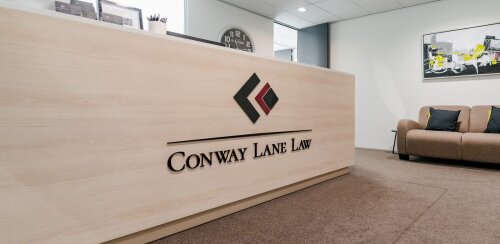Best Landlord & Tenant Lawyers in Rangiora
Share your needs with us, get contacted by law firms.
Free. Takes 2 min.
Free Guide to Hiring a Real Estate Lawyer
List of the best lawyers in Rangiora, New Zealand
1. About Landlord & Tenant Law in Rangiora, New Zealand
Rangiora sits in the Canterbury region of New Zealand and follows the national framework for landlord and tenant relationships. The primary laws governing residential renting are set at the national level, not by Rangiora local councils. This means the same rules apply to a Rangiora property as to properties across the country.
Key elements include written or implied tenancy agreements, bonds lodged with the government bond system, and rules about rent, repairs, entry, and termination. The Tenancy Services arm of the government provides official guidance, templates, and dispute resolution pathways that residents of Rangiora can rely on. For dispute resolution, most tenancy issues are handled by the Tenancy Tribunal, a nationwide process with hearings that can be accessed in the Canterbury region.
Understanding your rights and responsibilities early helps prevent disputes from escalating. Remember that rental law in New Zealand also covers minimum standards for heating, insulation, moisture and ventilation through the Healthy Homes Standards, which apply to rental properties nationwide, including Rangiora.
Residential tenancy law in New Zealand is primarily defined by the Residential Tenancies Act 1986 and its amendments. The Healthy Homes Standards set minimum housing conditions for rental properties.
Sources: MBIE Tenancy Services, Residential Tenancies Act 1986 (NZ Legislation), Ministry of Justice - Tenancy Tribunal information.
2. Why You May Need a Lawyer
In Rangiora, there are concrete scenarios where seeking legal advice from a solicitor or legal counsel can save time, money, and stress. Below are real-world examples that locals commonly encounter.
- Bond disputes after moving out - A tenant disputes deductions from a bond for alleged damage that was pre-existing or not clearly documented in the move-in checklist. An attorney can assess the claim, gather evidence, and represent you in the Tenancy Tribunal if needed.
- Unlawful or retaliatory eviction notices - A landlord proposes ending a tenancy without a valid basis or with improper notice. A lawyer can evaluate the notice, explain rights, and pursue remedies if the notice breaches the Residential Tenancies Act.
- Serious habitability issues - Your Rangiora rental lacks adequate heating or insulation or has mould that the landlord refuses to fix. A lawyer can guide you through required standards, document conditions, and seek appropriate remedies or orders.
- Rent increases and fee disputes - If a landlord imposes a rent increase outside the approved legal framework or adds charges not permitted by law, a solicitor can negotiate or take formal action to enforce compliance.
- Repairs not completed in a timely manner - When essential repairs are delayed, a lawyer can help determine a lawful sequence for notice, repairs, and potential compensation while keeping you compliant with tenancy obligations.
- End of fixed-term versus periodic tenancies - If the landlord or tenant seeks to end the tenancy, legal counsel can clarify the correct notice periods, grounds if any, and process to avoid breach claims.
3. Local Laws Overview
Two to three national statutes and regulators form the backbone of Landlord & Tenant law that affects Rangiora residents. They are part of New Zealand-wide policy, though enforcement and case handling occur in Canterbury courts and tribunals.
- Residential Tenancies Act 1986 - The core legislation governing tenancy agreements, bonds, terminations, repairs, and related rights and duties. It provides the framework for how landlords and tenants interact in Rangiora and across New Zealand. Legislation reference: legislation.govt.nz.
- Residential Tenancies Amendment Act 2020 - Introduces changes to tenancy protections, including some limits on termination rights and improvements to balance obligations between landlords and tenants. Provisions began to apply in stages after passage in 2020; consult the official legislation for exact commencement dates.
- Residential Tenancies (Healthy Homes Standards) Regulations 2019 - Sets minimum housing standards for heating, insulation, moisture and ventilation. These standards apply to rental properties nationwide, including Rangiora, with phased implementation and compliance monitoring by MBIE. Regulation text: legislation.govt.nz.
In addition to these Acts and regulations, landlords and tenants should be aware that tenancy disputes are commonly resolved through the Tenancy Tribunal, which operates under the broader justice system. For procedural details, refer to the official tenancy resources and statutory texts linked below.
Sources: MBIE Tenancy Services, Residential Tenancies Act 1986, Residential Tenancies Amendment Act 2020, Healthy Homes Standards Regulations 2019.
4. Frequently Asked Questions
What exactly is a fixed-term tenancy and how does it end?
A fixed-term tenancy lasts for a set period, such as 12 months, and ends automatically at the end date unless renewed. To end early, both parties must agree or follow specific notice rules if there is a breach. Consult the lease and the Residential Tenancies Act for precise terms.
How do I lodge a bond and where is it kept?
Bonds are lodged with the government Bond Centre via the Tenancy Services system. The landlord must lodge the bond within the statutory timeframe after the tenancy starts. The bond is held to cover potential end-of-tenancy deductions.
When can a landlord legally increase rent in Rangiora?
Rent increases must follow the statutory process outlined in the Act and regulations. They are typically allowed at the anniversary of the tenancy or when the tenancy term permits, and must comply with notice requirements and any caps or guidelines set by the Act.
What is the Tenancy Tribunal and how do I use it?
The Tenancy Tribunal is a fast, lower-cost forum for resolving tenancy disputes. You file a claim, serve the other party, and a hearing is scheduled. The Tribunal issues a decision that can be appealed to the district court.
What are the Healthy Homes Standards and do they apply to me?
The Healthy Homes Standards set minimum conditions for heating, insulation, ventilation and moisture. They apply to most rental properties nationwide, including Rangiora. Landlords must comply within the regulated timelines.
Do I need a lawyer for tenancy problems in Rangiora?
Not always, but a solicitor can help when disputes involve complex facts, large financial claims, or potential breaches of multiple regulations. An attorney can prepare evidence, negotiate settlements, and represent you in the Tribunal if needed.
How long does a tenancy dispute take to resolve in New Zealand?
Disputes vary in length. Quick matters may be resolved within a few weeks, while complex cases can take several months, depending on the court or Tribunal calendar and the amount at issue. Prepare your file early to avoid delays.
Can a landlord enter my rented home without notice?
No, except in emergencies or as provided by the tenancy agreement and the relevant law. Landlords must give proper notice before entering for repairs or inspections, and there are limits on frequency and timing.
Is it mandatory to sign a tenancy agreement in Rangiora?
While a tenancy can be verbal, having a written agreement is strongly recommended. A written agreement clarifies rent, term, bond, repairs, and access rights, reducing the risk of disputes.
What is the difference between a periodic and a periodic tenancy?
What most people call a periodic tenancy is an ongoing arrangement without a fixed end date. A fixed-term tenancy has a defined end date. The transition between the two requires proper notice if changes are needed.
Do I need to provide income or references to get a tenancy?
Landlords may request information to assess suitability, such as references or income details. However, there are privacy and discrimination protections. Provide only information relevant to tenancy suitability and required by law.
5. Additional Resources
Access official sources for authoritative information on landlord and tenant law in Rangiora and nationwide:
- MBIE Tenancy Services - Official guidance on tenancy rights, bonds, repairs, disputes, and tenancy forms. tenancy.govt.nz
- Legislation New Zealand - Official texts of the Residential Tenancies Act 1986, its amendments, and related regulations. legislation.govt.nz
- Ministry of Justice - Tenancy Tribunal information - Government portal describing how tenancy disputes are resolved and the Tribunal process. justice.govt.nz
6. Next Steps
- Define your issue and goal - Write a one-page summary of your tenancy problem, desired outcome, and any deadlines. This helps a lawyer scope the case quickly. Time estimate: 1-2 days.
- Gather key documents - Collect the tenancy agreement, rent receipts, bond receipt, communications with the landlord, and any repair records. Time estimate: 1-3 days.
- Check local expertise - Look for Rangiora or Canterbury solicitors with explicit landlord-tenant experience. Read client notes and ask about recent tenancy matters they have handled. Time estimate: 1-2 weeks.
- Request preliminary consultations - Contact 2-3 lawyers to discuss your issue and obtain fee estimates. Most firms offer a brief initial meeting or call. Time estimate: 1-2 weeks.
- Clarify costs and billing - Ask about hourly rates, retainer expectations, and whether fixed-fee options exist for specific tasks like document review or a Tribunal appearance. Time estimate: 1 week.
- Engage and sign engagement letters - Choose your solicitor and sign a written engagement letter specifying scope, fees, and timelines. Time estimate: within 2-3 weeks of initial contact.
- Plan next steps and timeline - With your solicitor, create a step-by-step timeline for filing, hearing dates, and any negotiations. Monitor progress and adjust as needed. Time estimate: ongoing with case milestones.
Lawzana helps you find the best lawyers and law firms in Rangiora through a curated and pre-screened list of qualified legal professionals. Our platform offers rankings and detailed profiles of attorneys and law firms, allowing you to compare based on practice areas, including Landlord & Tenant, experience, and client feedback.
Each profile includes a description of the firm's areas of practice, client reviews, team members and partners, year of establishment, spoken languages, office locations, contact information, social media presence, and any published articles or resources. Most firms on our platform speak English and are experienced in both local and international legal matters.
Get a quote from top-rated law firms in Rangiora, New Zealand — quickly, securely, and without unnecessary hassle.
Disclaimer:
The information provided on this page is for general informational purposes only and does not constitute legal advice. While we strive to ensure the accuracy and relevance of the content, legal information may change over time, and interpretations of the law can vary. You should always consult with a qualified legal professional for advice specific to your situation.
We disclaim all liability for actions taken or not taken based on the content of this page. If you believe any information is incorrect or outdated, please contact us, and we will review and update it where appropriate.









